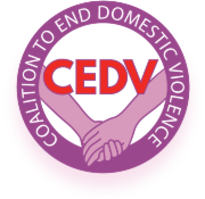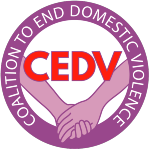The Minnesota Court of Appeals has reinstated a defamation suit against an organization that helps victims of domestic violence, ruling that a story told by a man’s ex-wife at an awards banquet and fundraising newsletter is not protected.
There was no mention of domestic abuse in the divorce decree between Kurt Maethner and Jacquelyn Jorud when their 15-year marriage ended in 2010. But four years later, at a fundraising banquet for Someplace Safe, a Fergus Falls, Minn.-based agency for domestic abuse survivors, the agency gave a “Survivor Award” to Jorud as a “survivor of domestic abuse.”
Someplace Safe also issued a press release with her photo and some area newspapers used it in their articles, even though it never investigated any of her claims.
A subsequent fundraising newsletter carried this message from Jorud:
“I was asked to write a short article celebrating the fact of not just surviving domestic violence, but thriving through recovery.”
“Getting out of an unhealthy, threatening and dangerous relationship is hard. It is scary.”
“Just because you have left, or the divorce is final, . . . doesn’t mean the slate is []wiped clean and you can just start a new life.”
“I don’t know if there will ever be a time when I can be certain I am no longer being stalked and watched.”
“I didn’t want to live in a constant state of fear.”
“I didn’t want daily conflict and fighting.”
The article didn’t mention Maethner by name, nor did it contain any identifying information to suggest she was talking about him.
But he sued her and Someplace Safe because their marriage was well known in the community and a reasonable person would believe she was talking about him.
A district court threw the case out because he wasn’t identified in her story, that the speech was protected, and that Someplace Safe had no duty to investigate her claims.
Whether her claims are true or not isn’t an issue, the Minnesota Court of Appeals made clear today in returning the case for trial (See ruling).
While defamatory statements might be protected when presented in good faith — a psychologist alleging likely child abuse, for example — that’s not the case here, the court said.
“A banquet and newsletter were not the proper occasion to disseminate statements alleging criminal conduct, nor did the fundraising purpose for both of these activities reflect a proper motive for doing so,” Judge Diane Bratvold wrote on behalf of the three-judge panel.
Someplace Safe acknowledged that the banquet’s purpose was to raise money for the organization. Someplace Safe also stated that it published Jorud’s article in a newsletter to “connect” with “funders and supporters” and to solicit donations.
The fourth factor also weighs against applying the privilege because Someplace Safe did not claim to have a “reasonable belief” that Jorud was abused. Instead, Someplace Safe expressly stated that it accepted Jorud’s statements at face value.
Bratvold said the woman’s posts on Facebook also are not protected.
And she said Someplace Safe had a duty to investigate Jorud’s claims, noting that proof of negligence is part of a defamation claim.
Someplace Safe seems to assert that it cannot be held liable for negligence because it did not directly make the allegedly defamatory statements, and merely “printed an article [Jorud] wrote.”
But this narrow exception applies only when the publisher has reprinted a news item obtained from a reputable wire service. (“The ‘wire service’ defense recognizes that a newspaper, under ordinary circumstances, cannot be found by a jury to have acted negligently by relying on the accuracy of a news item obtained from a reputable wire service.”).
Here, no wire or other news service was involved; Someplace Safe solicited, published, and disseminated Jorud’s article containing the allegedly defamatory matters.
Source: https://blogs.mprnews.org/newscut/2018/02/allegations-of-domestic-abuse-not-protected-speech-mn-court-rules/


